Posts by TGC Admin
Burns Night 2024

Get ready to don your kilts and tartans! Join us Thursday 25th January, 7pm for an unforgettable celebration of the legendary Robert Burns.
Dine a delectable 4 course Scottish menu, enjoy live music and of course…poetry!
Tickets cost £40 per person (includes free arrival drink and 4 course meal).
Please call 01842 763267 or visit our Customer Information Desk to book your tickets.
Menu for the Evening

Christmas Opening Hours 2023
Christmas Opening Hours
Calling all Night Owls!!
We are extending our shopping hours until 7pm, exclusively for the lead up to Christmas Day! Find everything you need from delightful home accessories, and heart-warming gifts to blooming plants, we have it all.

Lime Kiln Kitchen Christmas Hours

Caring for your Christmas Tree
Fresh Cut Trees
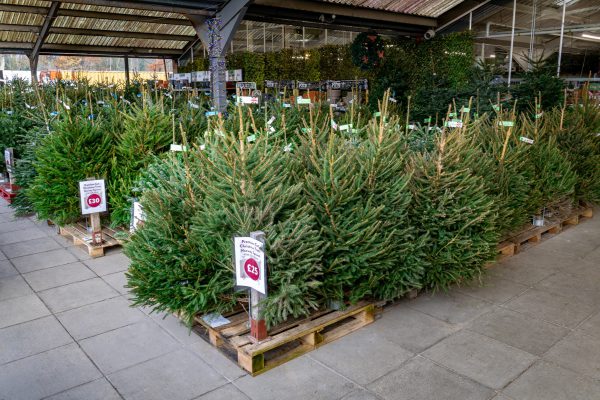
All conifers shed as part of their lifecycle and they will accelerate that shedding if they dry out. Not all trees have the same tolerance towards drought. Just follow our tips below to get the best from your tree and maintain its fresh appearance.
- It is vital to re-cut the sawn end of the tree removing another two inches. This will expose fresh plant cells in order to take up adequate water during its time indoors
- Stand the tree in a bucket of water, in a cool shaded spot before the tree is required to be brought indoors. This will re-hydrate the tree to help prevent it from shedding all its needles
- Use a tree stand that holds water which can easily top up, (your tree can drink more than a pint of water a day)
- Do not place your tree near a heat source
- Treat a Christmas tree as you would treat fresh flowers in the home
- Don’t worry if your tree appears flat on one side as this is unavoidably happens during transit. Once inside a warm room the branches will soon regain their natural shape
- If your tree was netted, it is a good idea to remove it as soon as you possibly can so the branches can spread out naturally.
Nordmann Fir
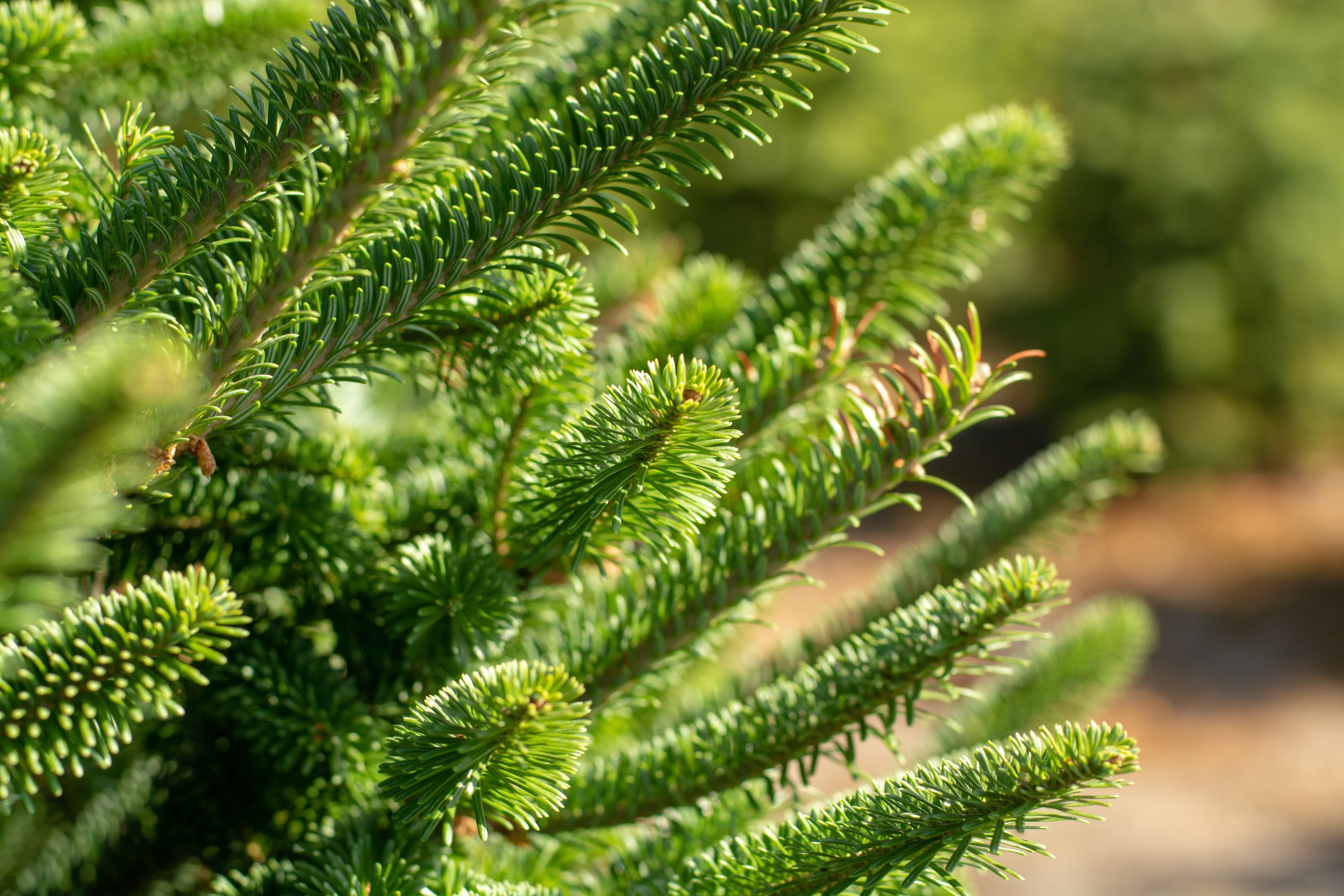
Well established over the years, the Nordmann Fir is generally regarded as being the best performing tree you can buy. Many people throughout the UK and the rest of Europe choose a Nordmann for their Christmas tree.
They offer better needle retention compared with other species such as the Norway Spruce. This is largely due to them having soft thick needles which help to minimise water loss and shedding all over your carpet! Another characteristic are its leaves; attractive blue grey needles which are silver when viewed from underneath.
Although a bit more expensive than the spruces, we believe they offer excellent value for money. Their shape makes them exceptionally high quality.
Norway Spruce
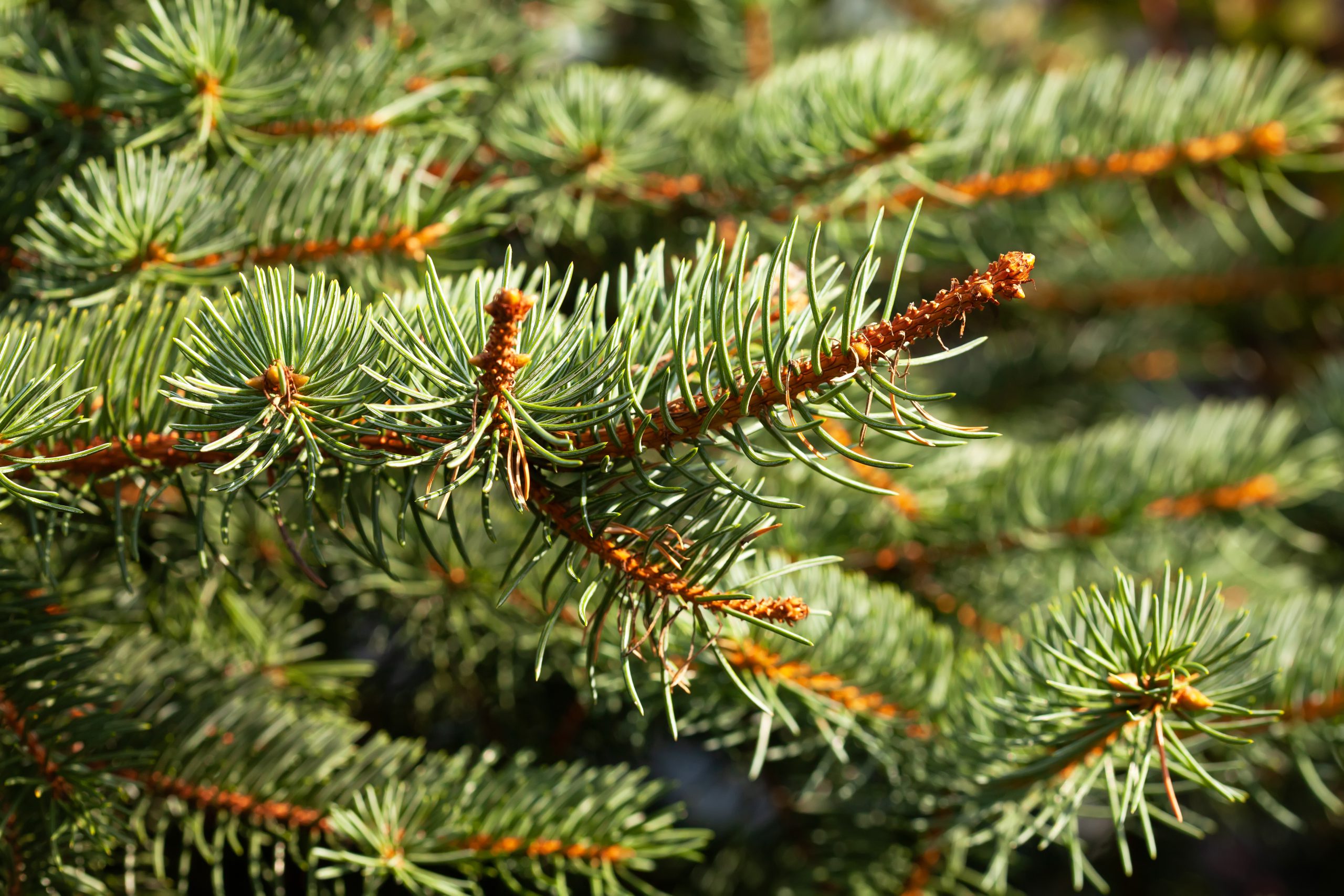
The Norway Spruce is the traditional Christmas tree with its pointed mid-green needles standing on tiny pegs and a lovely scent. It occurs naturally throughout the UK and the rest of Northern Europe.
It is because of its ability to grow well on a number of sites that it has become a popular tree. If not cared and properly situated, the Spruce is prone to needle-drop
Pot Grown
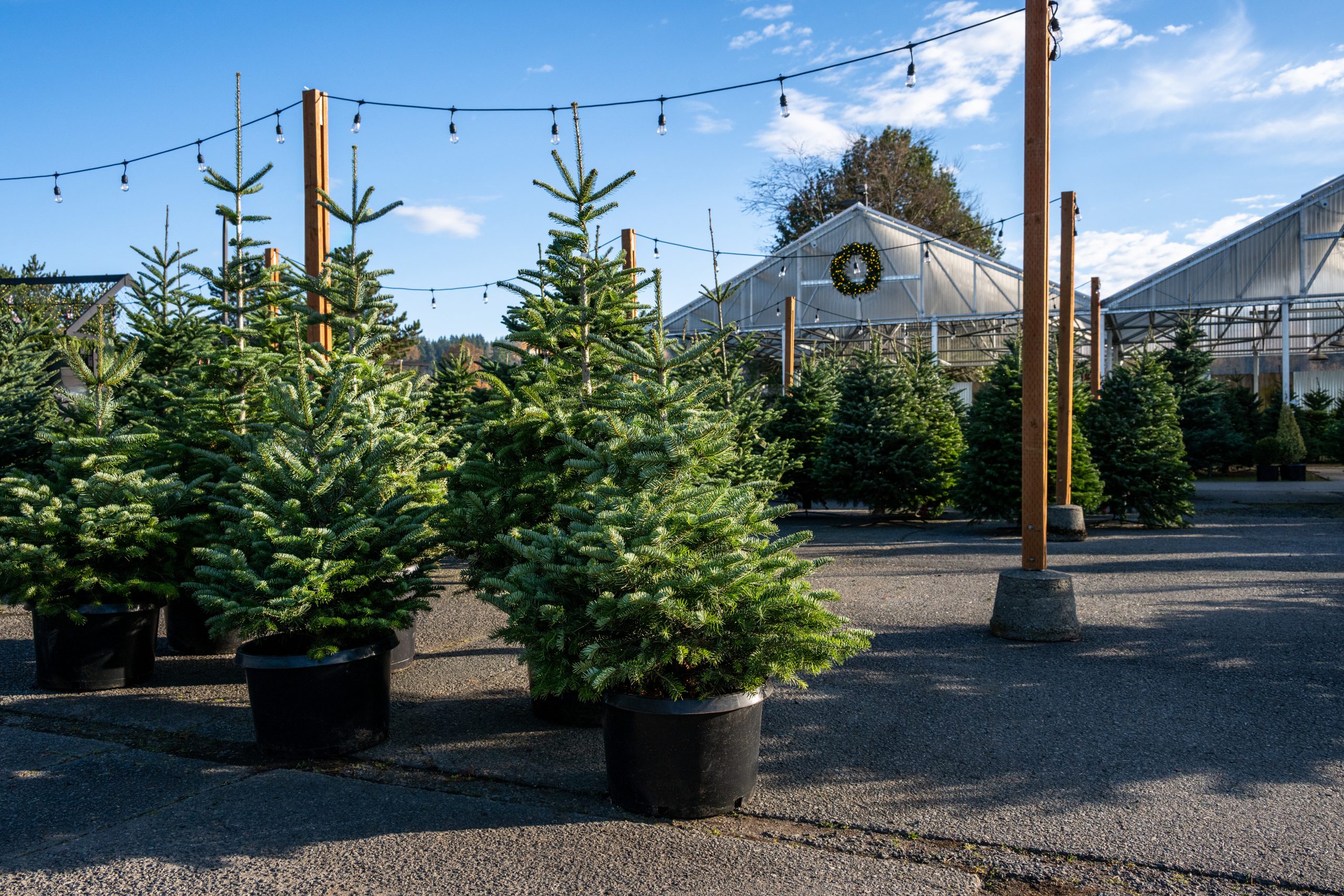
Over the last few seasons pot grown Christmas Trees have increased in popularity and we now stock pot grown Nordmann Firs alongside the Norway Spruce.
As the name suggests, they are Christmas Trees supplied in pots, complete with roots. Once the festive season is over it can be potted on or transplanted into the garden.
Pot Grown Trees
- After purchasing your post grown tree, remove it from the protective sleeve and keep it watered like you would any other plant kept in a pot.
- Before bringing our potted tree indoors, immerse it in water for at least 10 minutes to fully saturate the compost. Allow it to drain for a few hours and then bring inside.
- Follow the guideline for fresh cut trees regarding positioning – i.e. keep away from sources of heat.
- Water regularly as you would your other houseplants; don’t allow the compost to become too dry. Keeping the compost moist will also help to provide stability.
- You can repot or transplant the tree into the garden in early spring, just as the growing season starts. Just remember to keep watering it.
About Our Trees
All our trees are grown in commercially managed plantations specifically to be sold during the festive season. This means that more trees replace those cut down and sold. Depending on the size of your tree, it may be up to 7 years old!
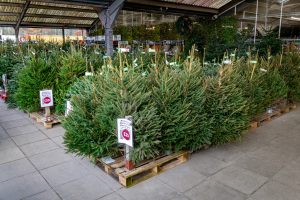
Your December Advice – Winter Edition

December has finally arrived! Although the weather may be cold, there’s plenty to do in the garden with a lovely cup of something warm to keep you going.
December Gardening Jobs
- Check your winter protection structures are still secure
- Check that your greenhouse heaters are working sufficiently
- Insulate outdoor taps and prevent ponds from freezing by a pond heater or melting the ice (cautiously) with a hot pan placed on the surface.
- Prune open-grown apples and pears (but not ones trained against walls)
- Prune acers, birches and vines before Christmas to avoid bleeding
- Harvest leeks, parsnips, winter cabbage, sprouts and remaining root crops
- Trees and shrubs can still be planted and transplanted
- Take hardwood cuttings
- Keep mice away from stored products
- Reduce watering of houseplants
Plants & Flowers
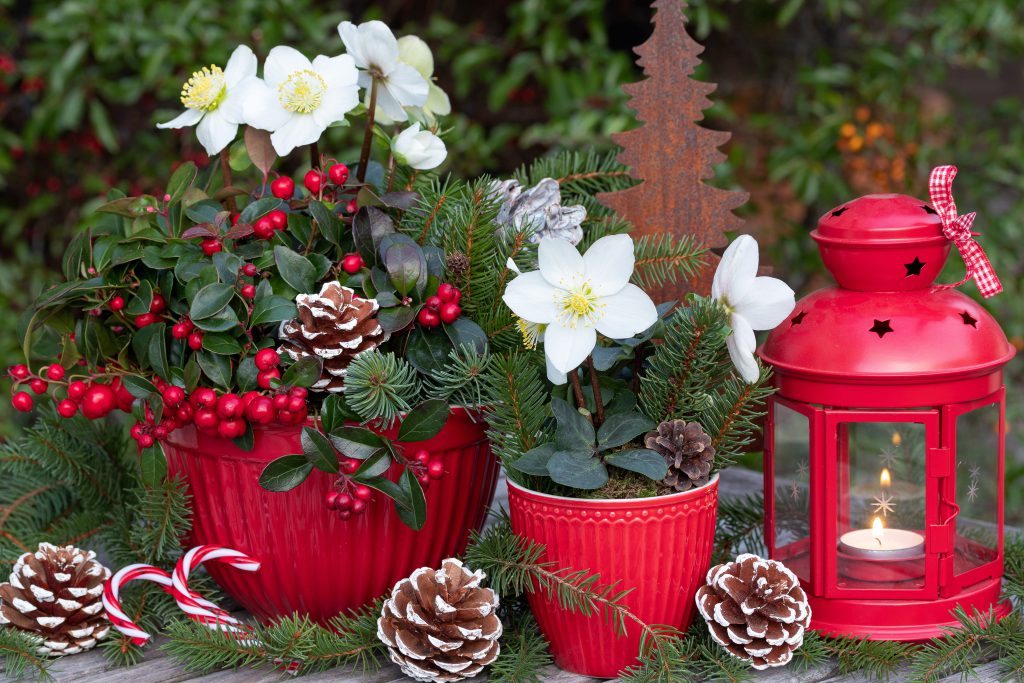
Tidying up the last of Autumn – Finish the clearing of leaves from the beds and borders to prevent plants dying from being covered in damp.
Clear up weedy beds in time for Spring mulching.
Root cuttings can now be taken.
Keep cutting back herbaceous perennials and add them to the compost heap.
Lawn
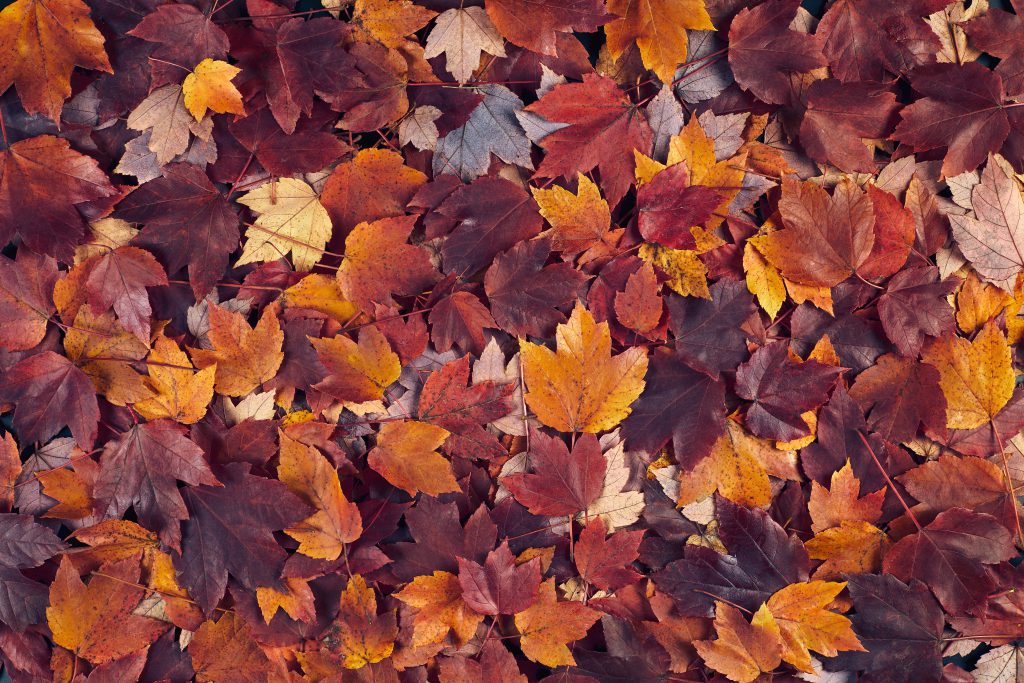
Rake any remaining leaves to prevent the grass being starved of light and moisture
Repair bare patches by using turf cut from other areas of the garden (if available).
Re-cut lawn edges with an edging iron to keep up a neat appearance of the garden.
Ponds
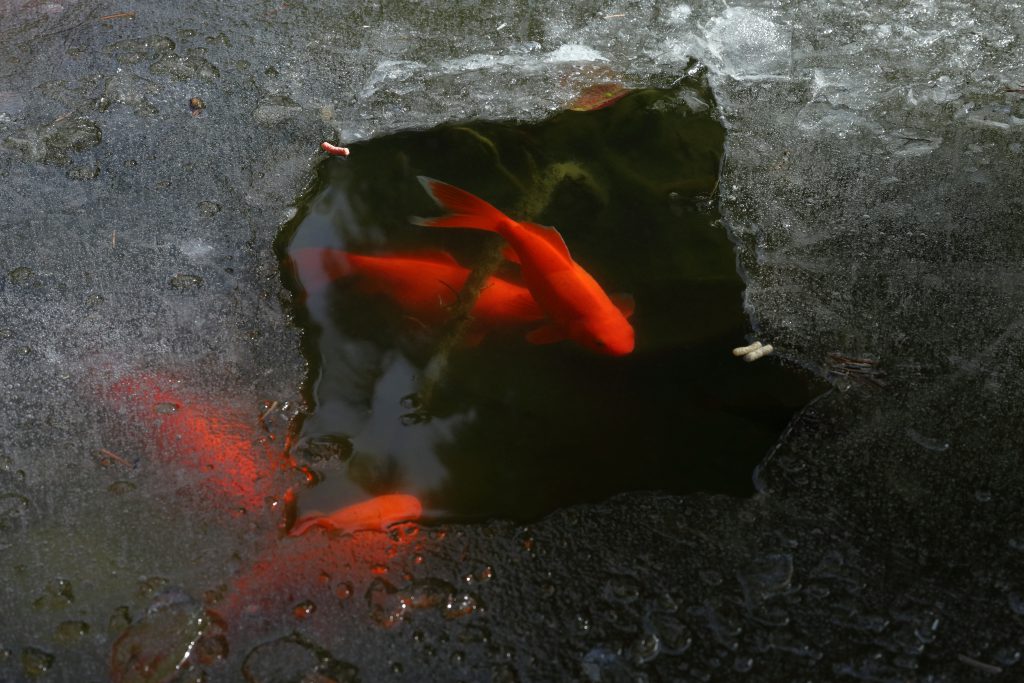
Beware of ice forming on the pond if you have fish as this can be fatal. Either install a air pump or pond heater to prevent this.
You can also make a hole by placing a saucepan of hot water on the surface until is has melted. Do not crack the ice as this can harm the fish.
Place nylon strings across the pond at least 15cm from the ground and edge of the pond to deter birds fishing.
Continue to rake out leaves and shake off any that have fallen on netting.
Trees & Shrubs
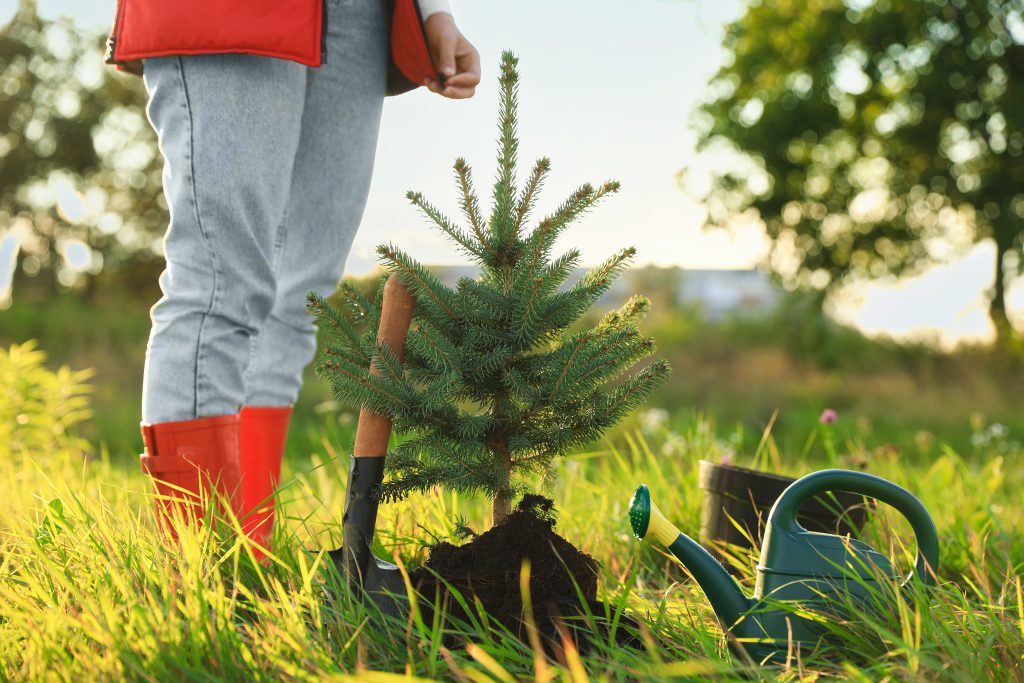
Protect new trees, hedges and shrubs from the cold weather, winds and frost. Thick dry mulch will protect the roots and branches can be covered with fleece. For evergreens, keep the light coming through by covering with clear polythene – don’t let it touch the leaves as they could freeze or rot from condensation.
Continue to plant roses but avoid anywhere that roses have been previously planted. This can lead to issues with replant diseases.
Check tree ties and stakes as cold and harsh winds can loosen them.
Your November Advice – Winter Edition
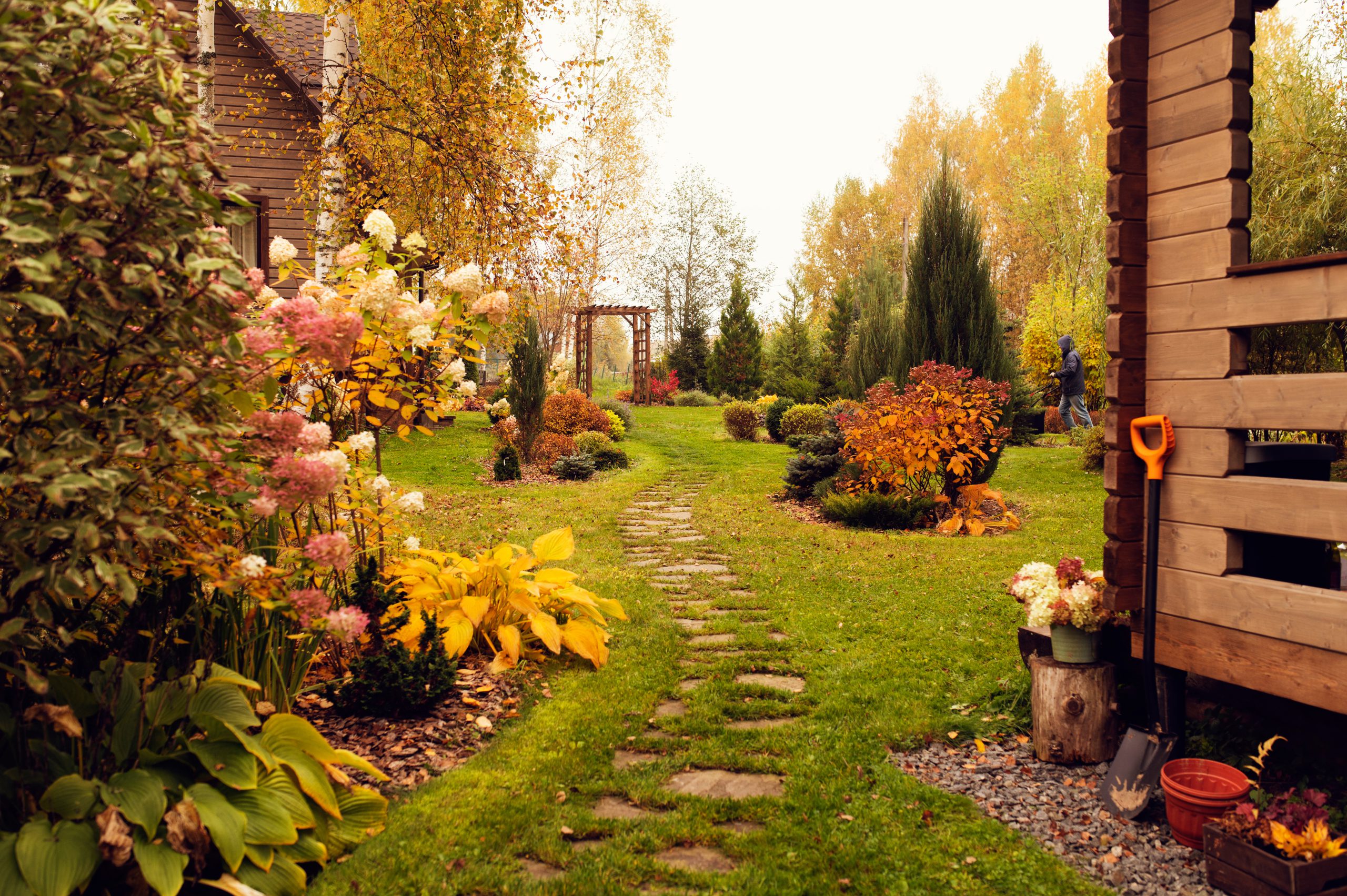
November Gardening Jobs
- Clear up fallen leaves – especially from lawns, ponds and beds
- Raise containers onto pot feet to prevent waterlogging
- Plant tulip bulbs for a spring display next year
- Prune roses to prevent wind-tock
- Plant out winter bedding
- Cover brassicas with netting if pigeons are a problem
- Insulate outdoor containers from frost – bubblewrap works well
- Stop winter moth damage to fruit trees using grease bands around the trunks
- Put out bird food to encourage winter birds into the garden
- Use a seasonal bonfire – where this is allowed – to dispose of excess debris unfit for composting. Please check for any wildlife before lighting.
Plants & Flowers
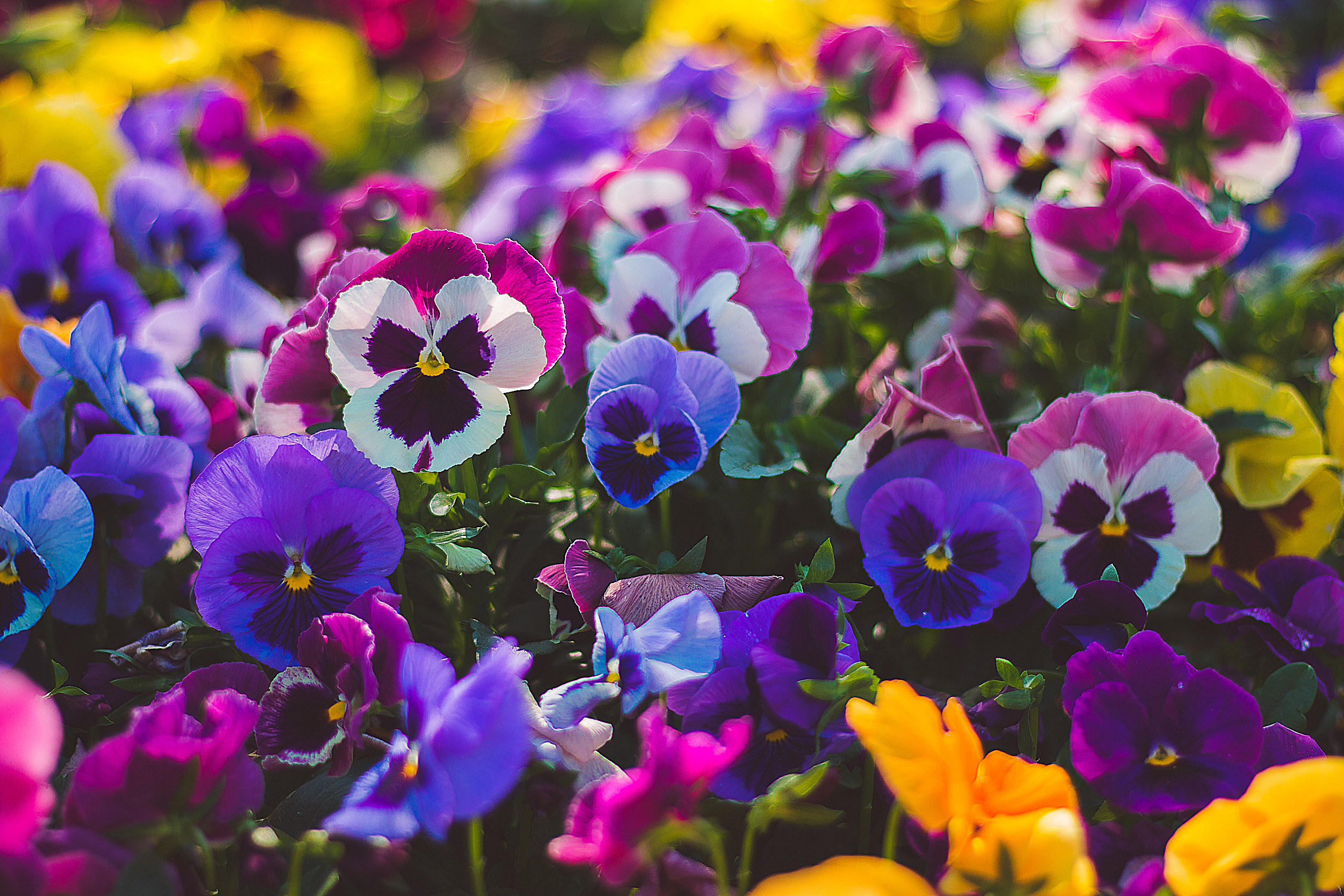
Cut leaves off Christmas type hellebores to make way for the flower.
Now is the last chance to plant out winter bedding. Flowers such as Viola, forget-me-nots, Bellis and wallflowers.
Apply an Autumn mulch to protect plants that are borderline hardy.
Tidy up leaves from around the borders and pop them in the compost pile.
Lawns
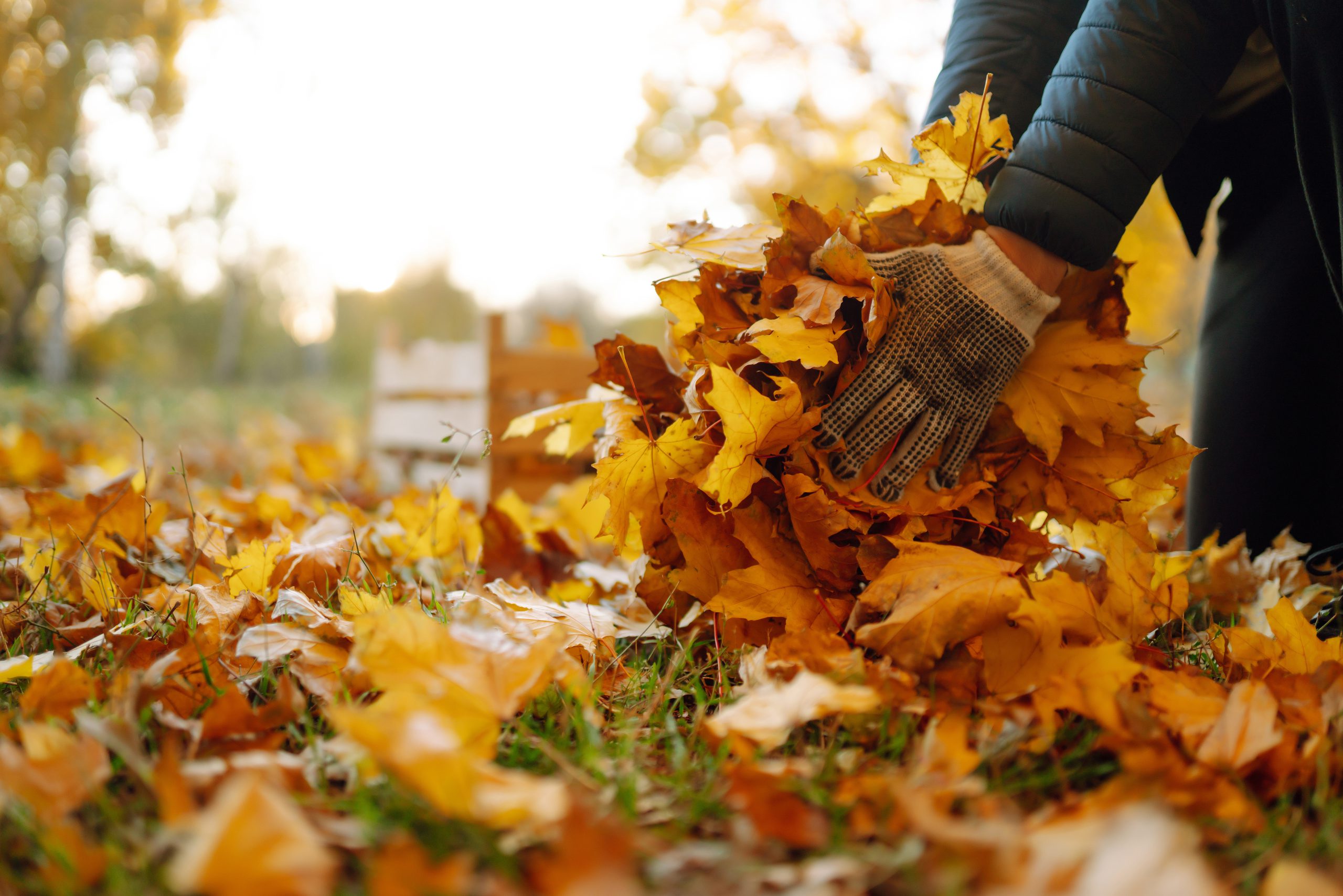
Apply an autumn feed if your grass needs a boost – do this after scarifying and aerating but before applying a top dressing.
Remove fallen leaves so they do not smother the grass.
Lay turf onto prepared soil. Avoid walking on newly laid turf – leave for several weeks to allow the roots to establish.
Mow recently sown areas of grass.
Ponds
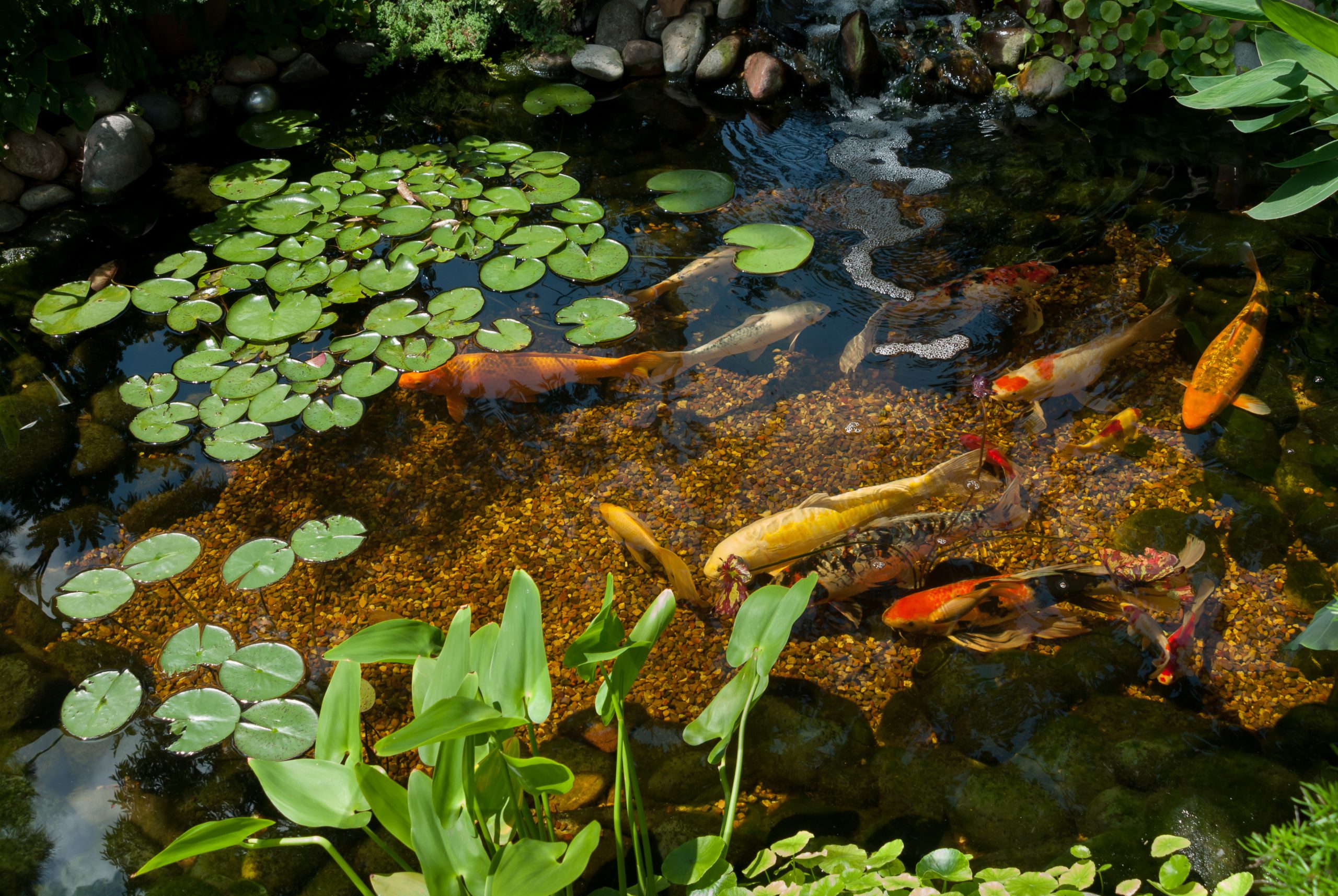
Remove any algae reducing measures, such as straw bales or pads from the pond. Be sure to set these aside for 24 hours before composting to let the pond insects find their way back to the water.
Rake out fallen leaves and shake off any that have fallen onto any protective netting.
Any aquatic plants that are not fully hardy should be taken into the greenhouse.
Trees and Shrubs
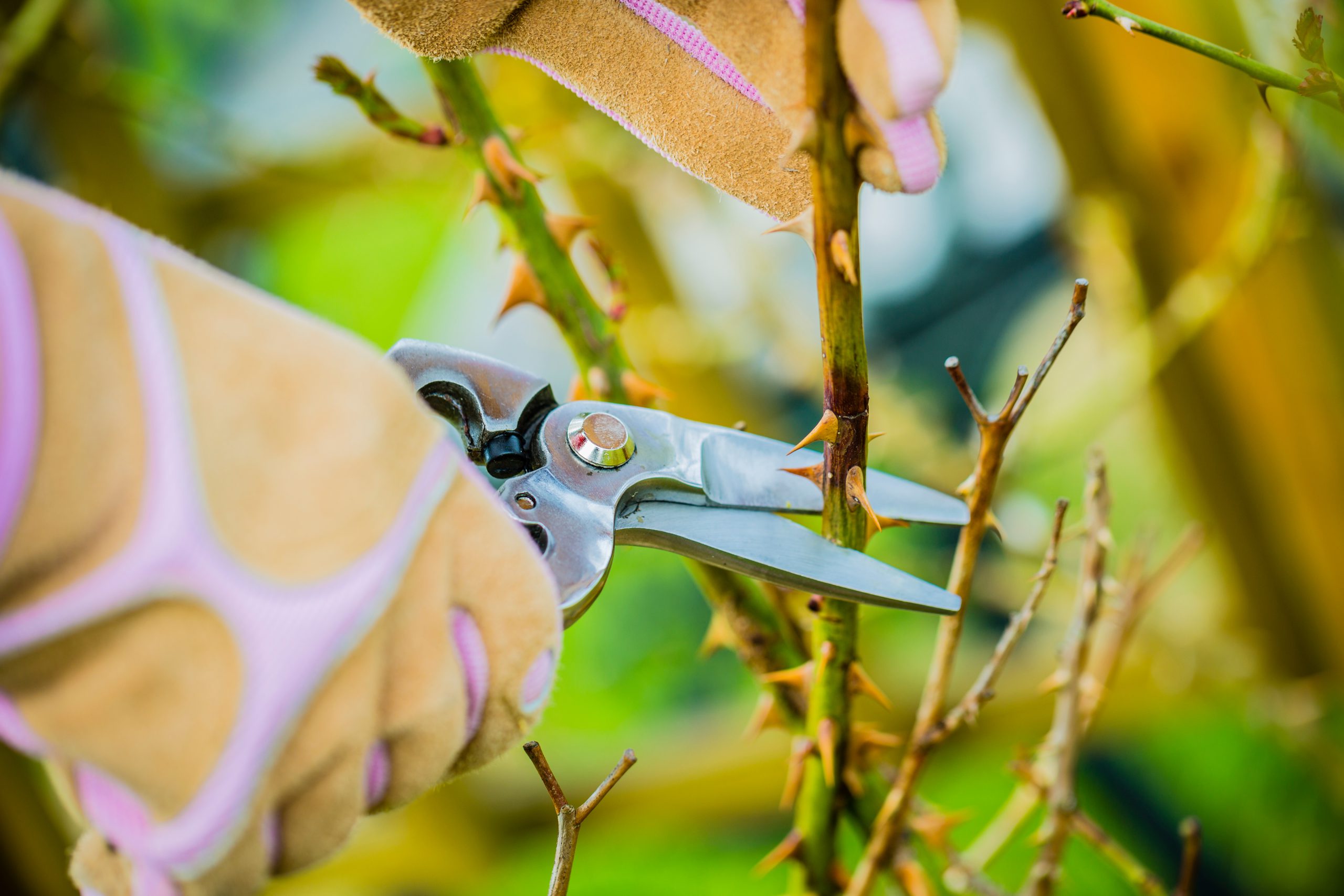
It is an ideal time to plant roses. Be sure to avoid planting new rose shrubs where previously grown, as this can introduce replant diseases.
Protect newly planted trees, hedges and shrubs from the wind and cold by netting windbreakers.
Climbing roses should be pruned by now, these are usually done much earlier in the autumn.
Your October Advice – Autumn Edition
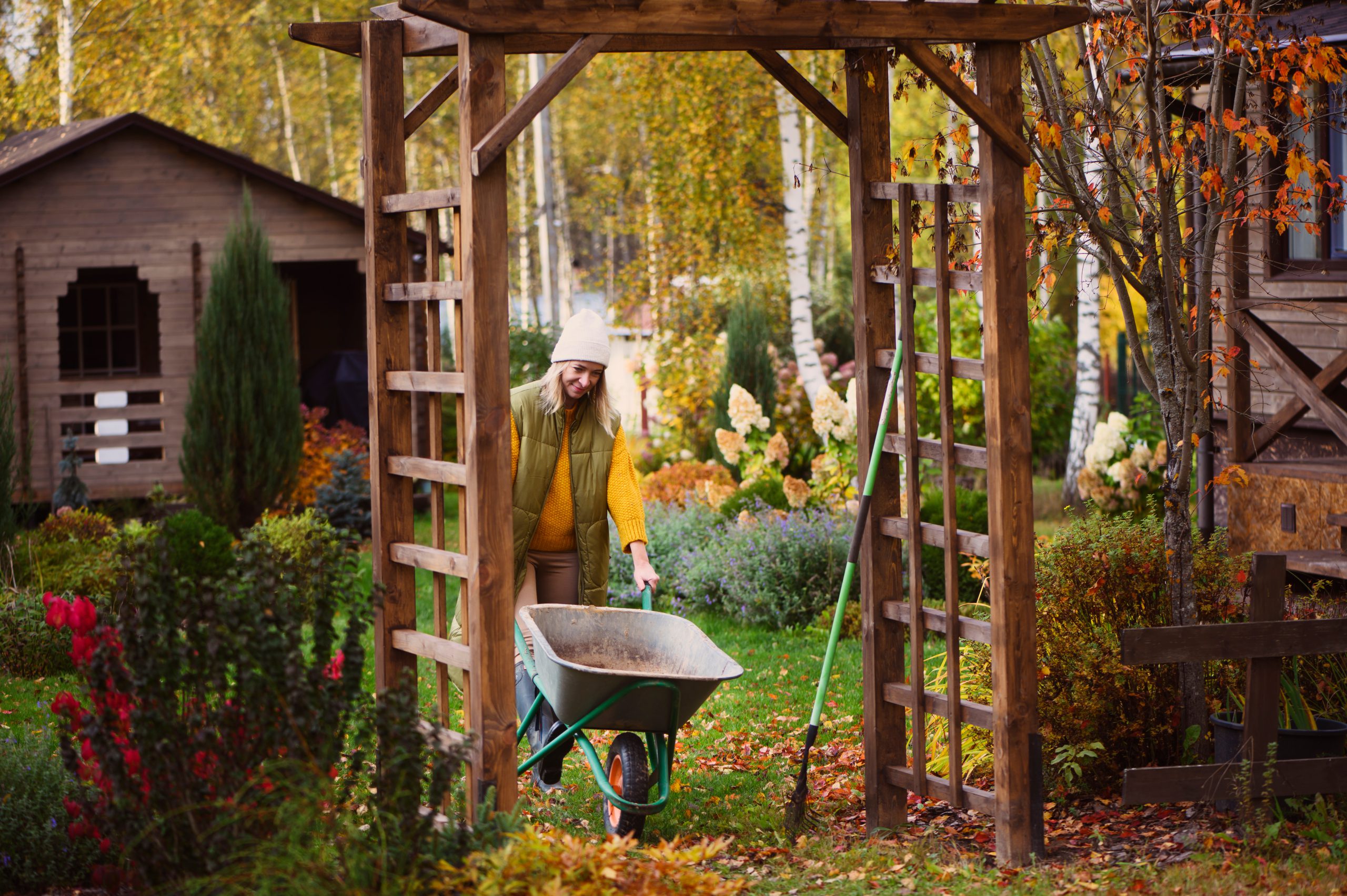
Autumn is officially here! The leaves are turning along with the weather. Let’s tidy up the garden a little.
October Gardening Jobs
- Move tender plants, including aquatic ones, into a greenhouse or conservatory
- Cut back perennials that have died
- Divide herbaceous perennials
- Divide established rhubarb crowns to create new plants
- Plant out spring cabbages
- Harvest apples, pears, grapes and nuts
- Prune climbing roses
- Finish collecting seeds from the garden to sow next year
- Last chance to mow lawns and trim hedges in mild weather
- Renovate old lawns or create new grass area by laying turf
Flowers & Plants
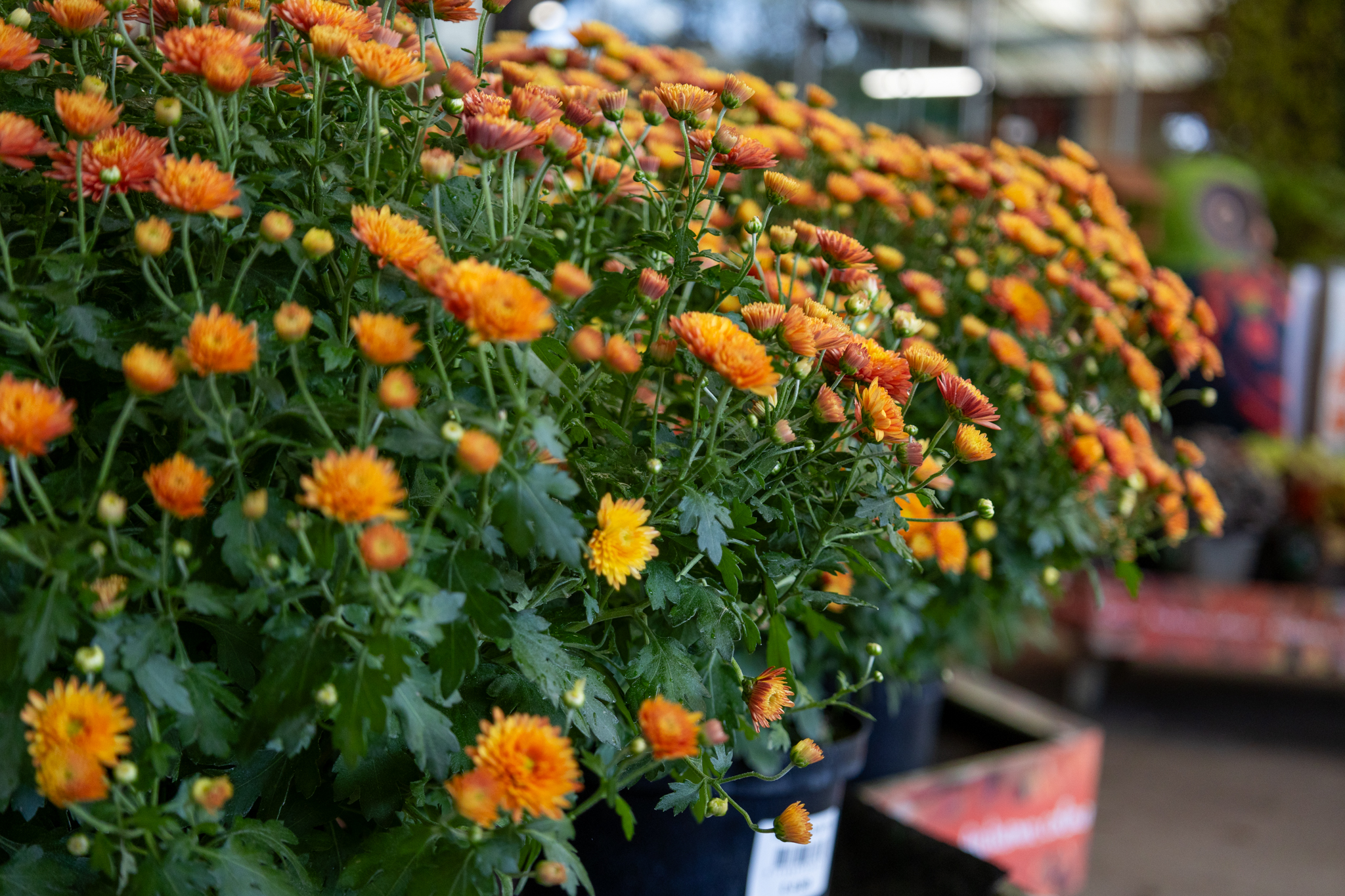
Raise patio containers on to bricks or purpose-made pot feet. This will prevent the pots sitting in water during winter.
Continue to plant spring-flowering bulbs.
As the soil is still warm, it’s a good time to plant new herbaceous perennials.
Lift and divide any poor flowering or overcrowded herbaceous plants.
Lawns
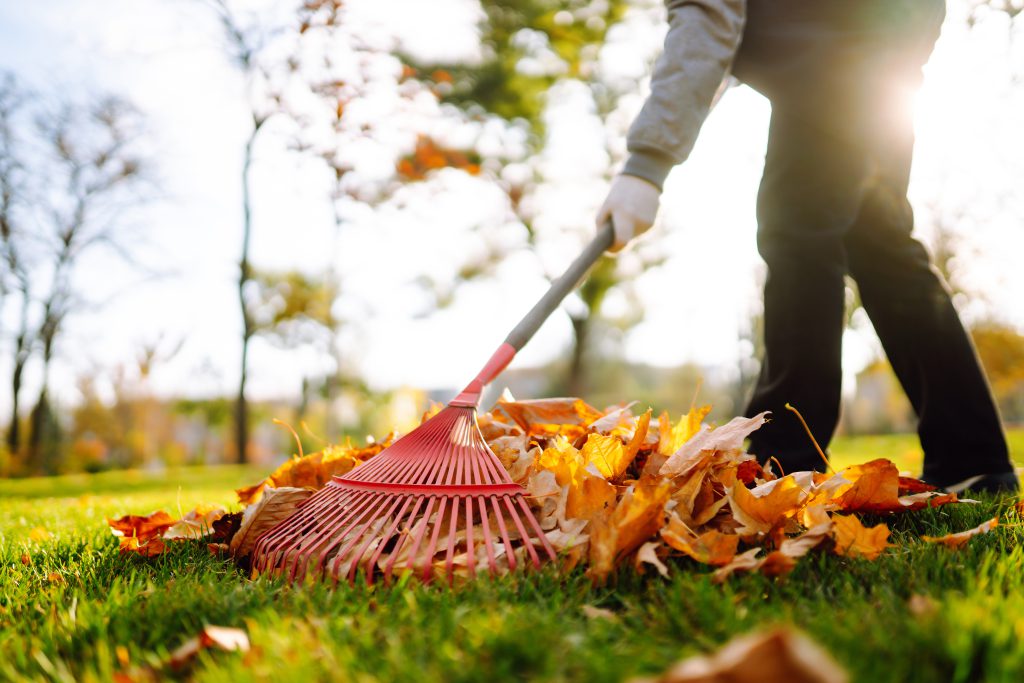
Apply an autumn feed if your grass needs a boost – do this after scarifying and aerating but before applying a top dressing.
Remove fallen leaves so they do not smother the grass.
Lay turf onto prepared soil. Avoid walking on newly laid turf – leave for several weeks to allow the roots to establish.
Mow recently sown areas of grass.
Ponds
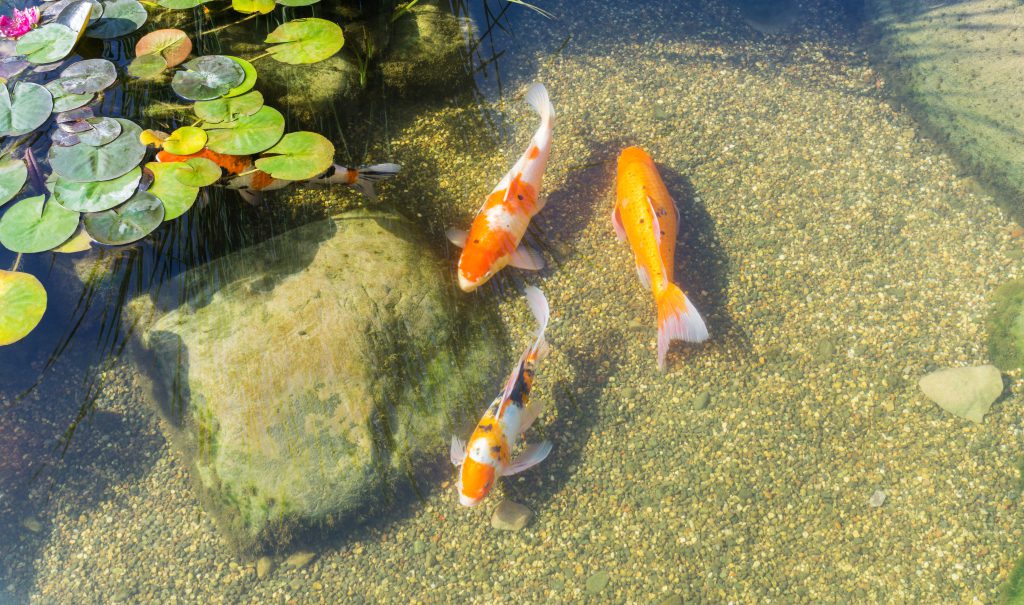
Place nets over smaller ponds to keep fallen leaves out.
Clear any debris, weeds and excess oxygenating plants. Leave them to the side of the pond for 24hrs to allow any wildlife to go back in to the water.
Remove pumps or fountains and removable lighting systems, clean them and store over winter.
Tree & Shrubs

If the weather is dry, keep watering early-flowering shrubs such as camellias, rhododendrons and azaleas, so that flower buds are initiated for spring blooms.
Check tree ties and stake before winter winds cause any damage.
Place healthy fallen leaves on the compost heap. If you shred the leaves first they will break down faster.
Your September Advice – Autumn Edition
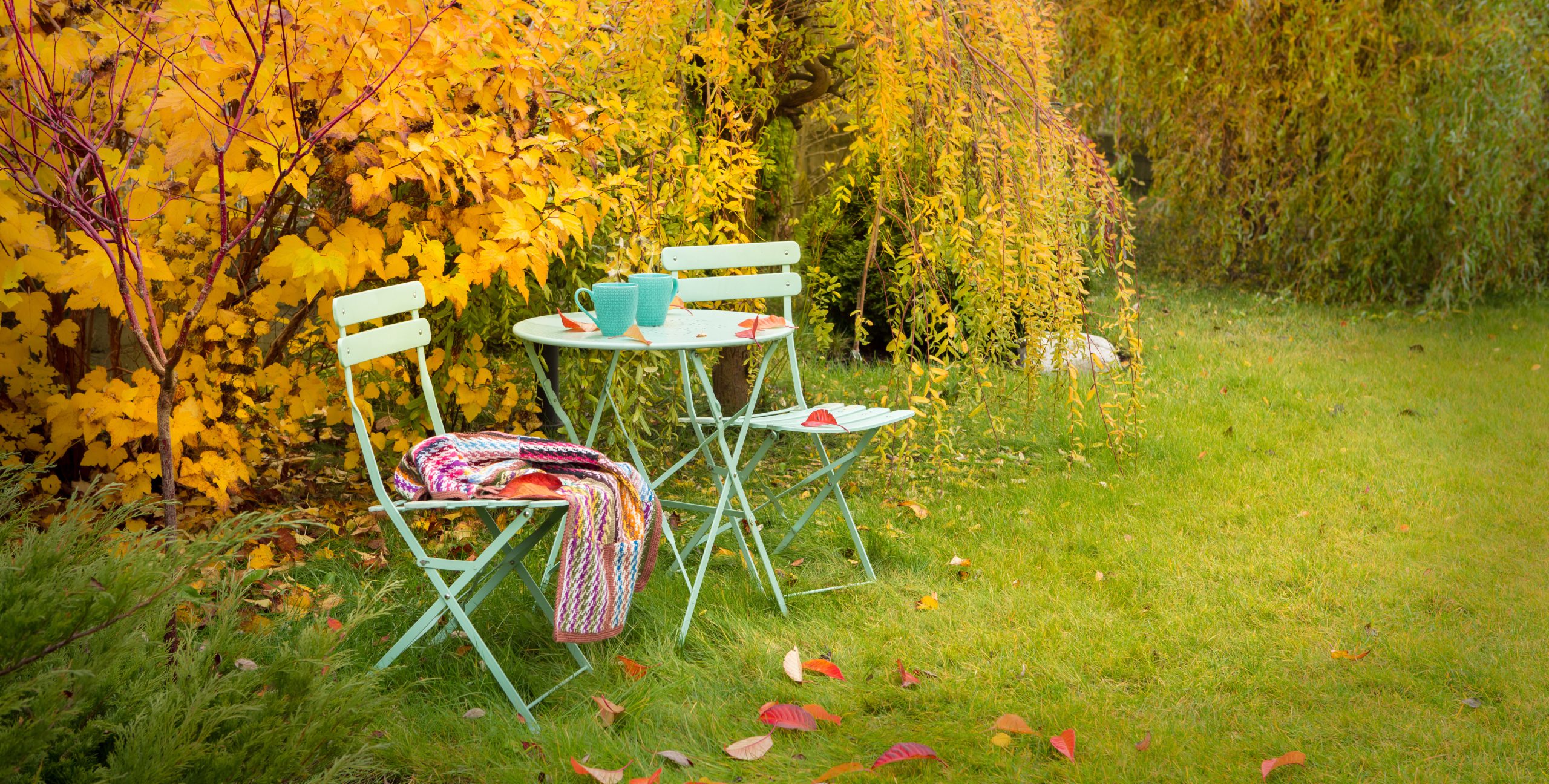
Can you feel Autumn approaching? Golden evenings filled with candles, a cosy cup of hot chocolate and a good book.
Before we get to relaxing, let’s sort out the garden.
September Gardening Jobs
- Divide herbaceous perennials
- Pick autumn raspberries
- Collect and sow seed from perennials and hardy annuals
- Dig up remaining potatoes before slug damage spoils them
- Net ponds before leaf fall gets underway
- Keep up with watering of new plants, using rain or grey water if possible
- Start to reduce the frequency of houseplant watering
- Clean out cold frames and greenhouses so that they are ready for use in autumn
- Cover leafy vegetable crops with bird-proof netting
- Plant spring-flowering bulbs
Plants & Flowers
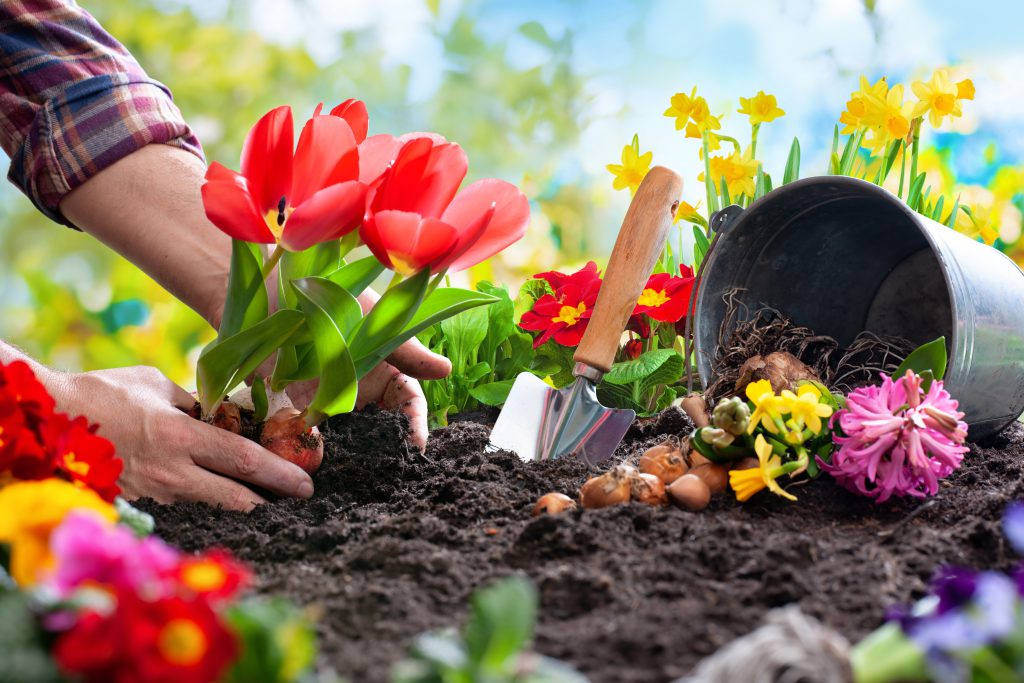
Be sure to have your spring-flowering bulbs ordered or better yet, planted so that you can expect a beautiful bloom come springtime.
Continue to deadhead, water and feed hanging baskets to take them right up into mid autumn!
Deadhead plants such as roses, delphiniums, dahlias and penstemons to keep their colour for longer into the month.
Bring tender plants like fuchsias, gazanias, lantanas and abutilons before frost causes damage.
Fruits & Vegetables
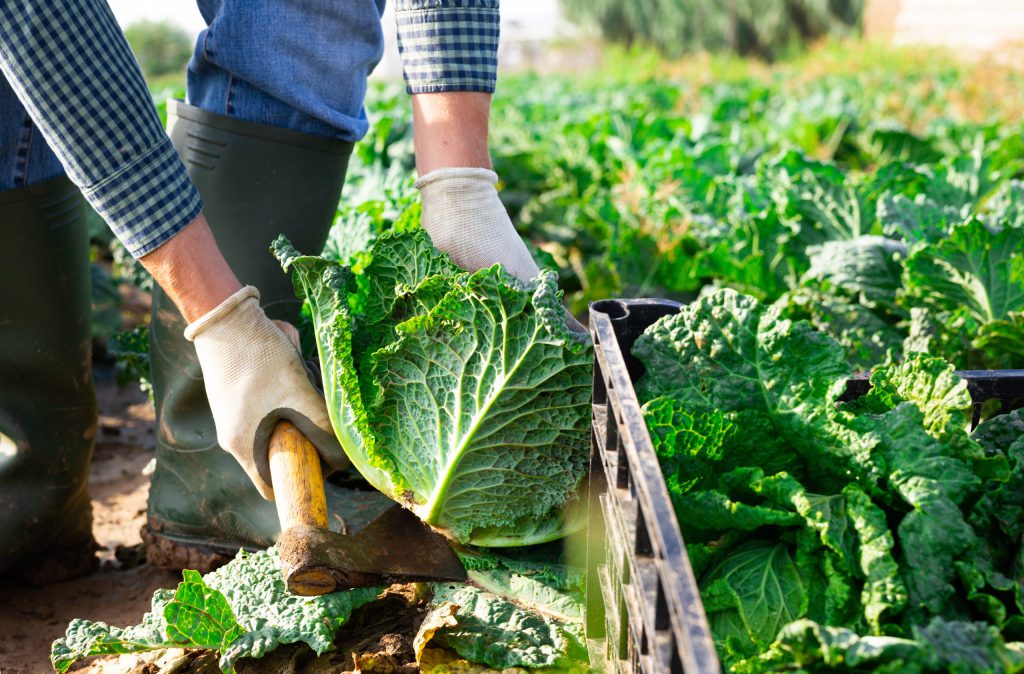
Vegetables to plant in September
- Cabbages, salads, peas and beans
- Garlic
- Turnips
- Spring onions
- Shallots
Fruit to plant in September:
Strawberries – The planting season tends to run from June to September, but August – September is the best time to plant this delicious red fruit to give it enough time to develop a good root system before winter arrives.
Lawn Care
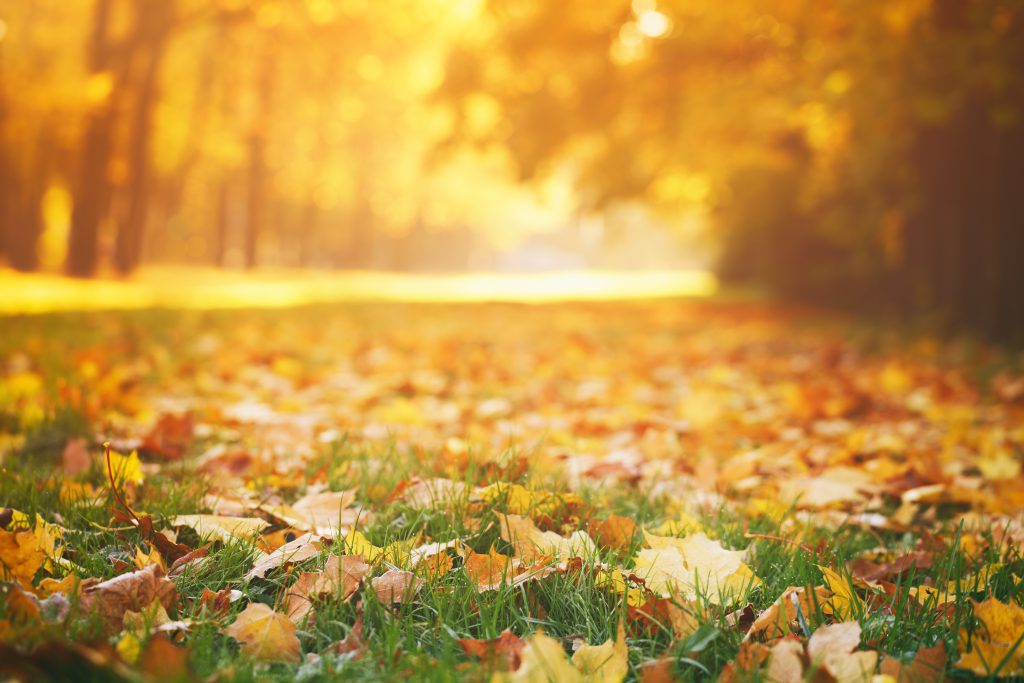
1. Scarify
Scarifying simply means raking up dead grass and moss to reduce layers of thatch. this is so that the thatch will not prevent water and fertiliser form getting through to the roots and soil
2. Trim back lawn and bed edges
During the summer of warmth and sunshine, your lawn edges may have gotten a little bit overgrown, this makes it the perfect time of year to trim back those lawn edges.
3. Aerate your lawn
The process of aerating is spiking the lawn to allow more air (and nutrients including water) to get to the grass roots. Aeration will also help your lawn survive through more extreme conditions such as waterlogging or drought.
4. Fork compacted areas
Due to heavy traffic in the summer, the lawn will need forking to break up the soil and improve the drainage when the rain starts to pour. Ensure that you push the fork four to six inches to the ground to get the proper aeration and drainage.
5. Apply Autumn Weed & Feed product
Once your lawn is treated and in pristine condition, it’s important to get some lawn feed down to ensure that the roots are still growing strong throughout the winter.
Pests & Disease
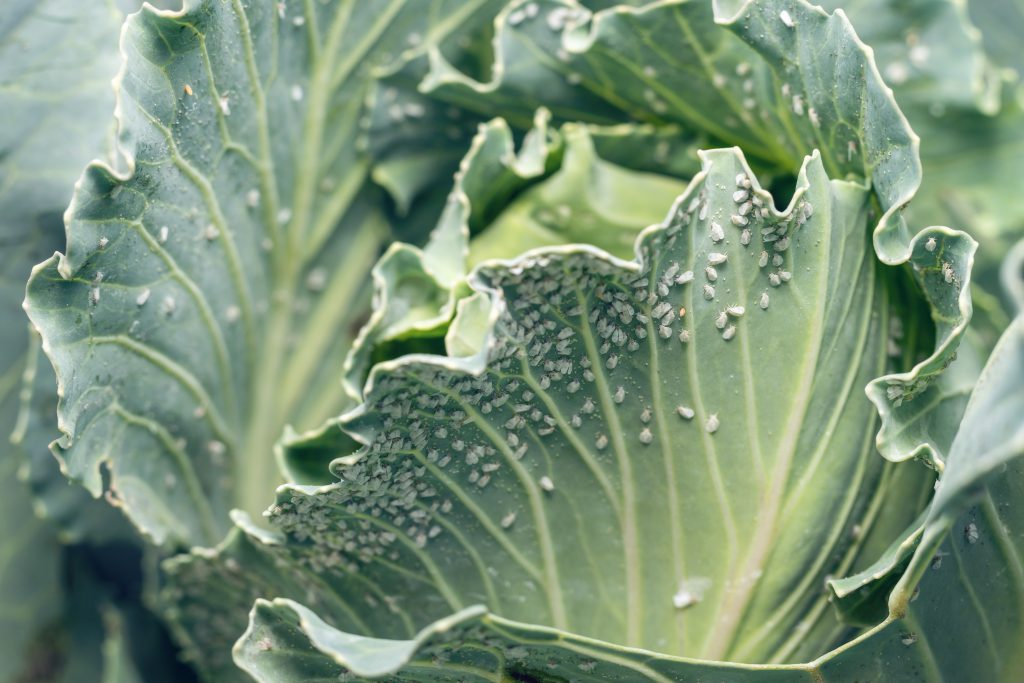
Warm and damp weather is the perfect combination for pests to thrive. Clearing out debris from containers and disposing of old compost (which can harbour soil-borne pests like vine weevil) will go a long way!
Pests to watch out for this Autumn:
- Cabbage Aphids
- Slugs
- Vine weevil
- Brassica whitefly
- Gooseberry sawfly
Your August Garden – Top Tips & Advice
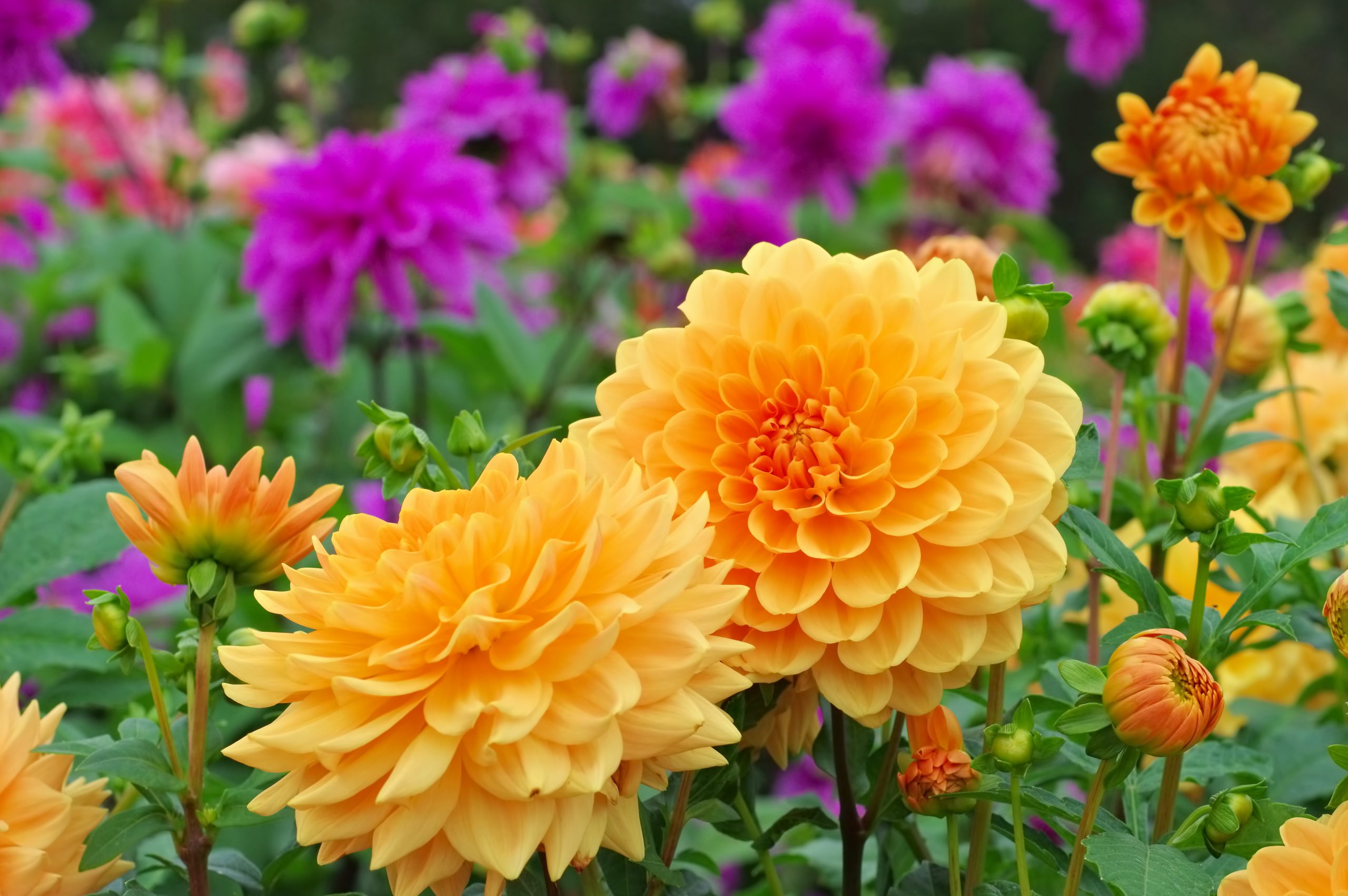
The month of BBQ’s, Sunshine and enjoying your lovely green garden.
August Gardening Jobs
- Prune Wisteria
- Don’t delay summer pruning fruits trained as restricted forms
- Deadhead flowering plants regularly
- Water Containers and new plants, preferably with grey recycled water or stored rainwater
- Collect seed from garden plants
- Harvest sweetcorn and other vegetables as they become ready
- Continue cutting out old fruited canes on raspberries
- Lift and pot up rooted strawberry runners
- Keep ponds and water features topped up
- Feed the soil with green manures
Plants & Flowers

Prune climbing roses after flowering has finished.
Prune summer flowering shrubs like Wisteria once the blooms have finished flowering.
Stake the stems of tall plants such as Dahlias and Lilies to prevent any damage caused by winds or heavy rain.
Tidy up any areas with spent perennial plants and fallen leaves.
Deadhead annual bedding plants and perennials to encourage them to flower in autumn.
Fruits & Vegetables
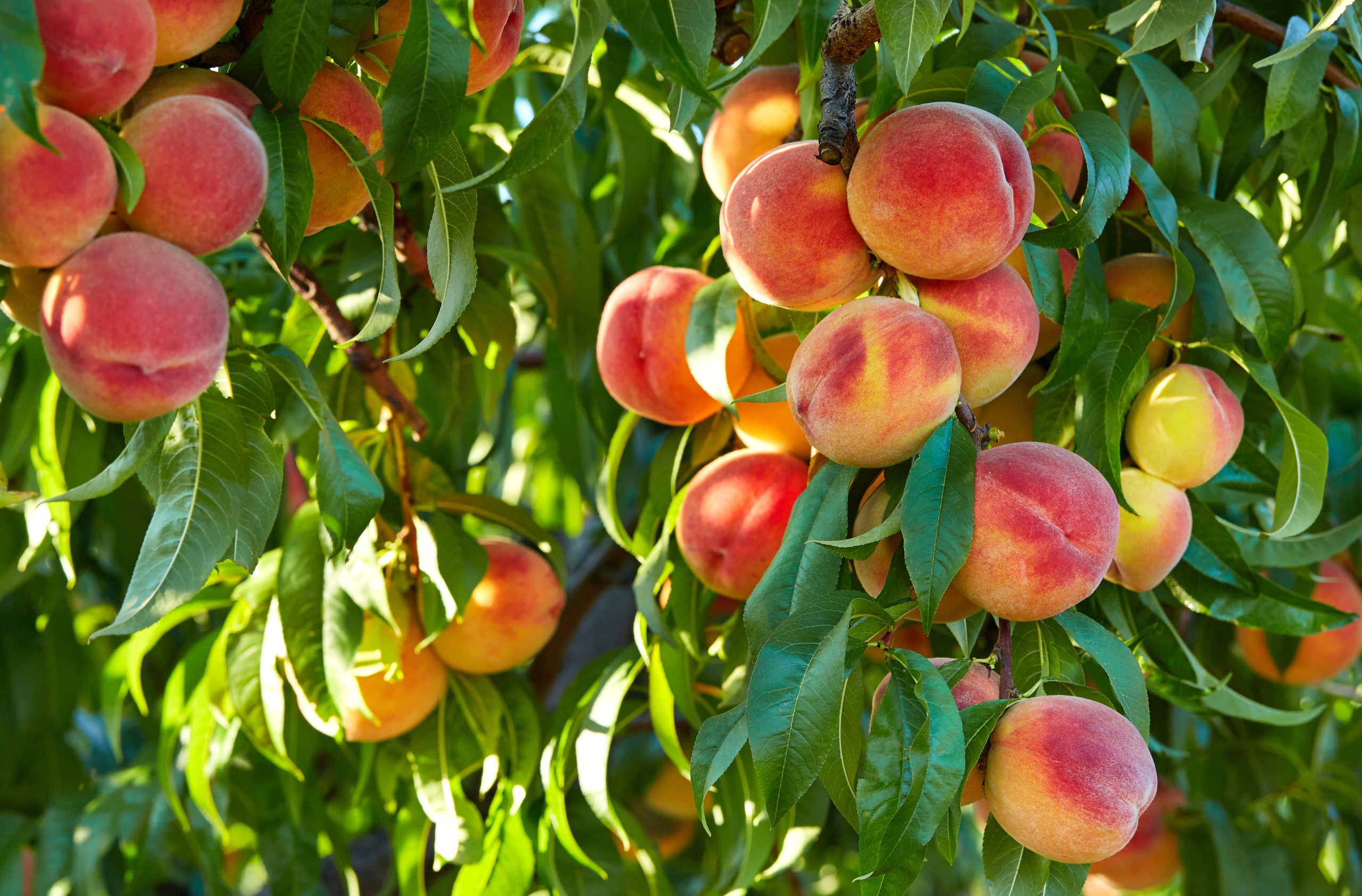
Protect ripe fruit and vegetables from birds and animals with netting.
Harvest maincrop potatoes and store in hessian sacks in a cool, dark and dry place.
Cut back herbs to encourage more growth before the first frost arrives.
Watering
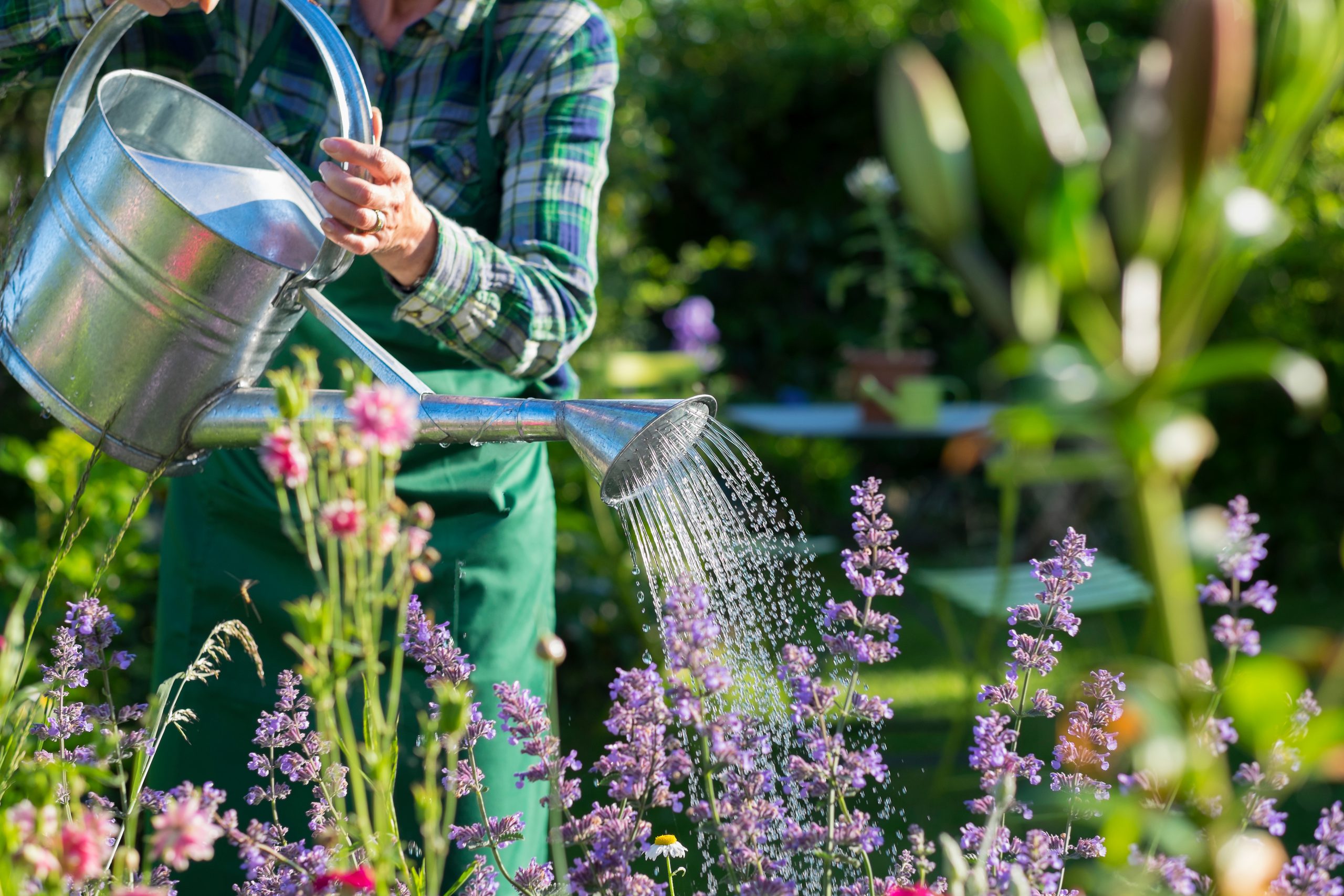
For any holiday goers, remember to organise a family member or friend to water your houseplants and garden if necessary.
Water early in the morning or late in the evening to reduce water evaporation.
Keeping your garden well weeded can also ensure the water goes to the plants that need it.
Pests & Disease
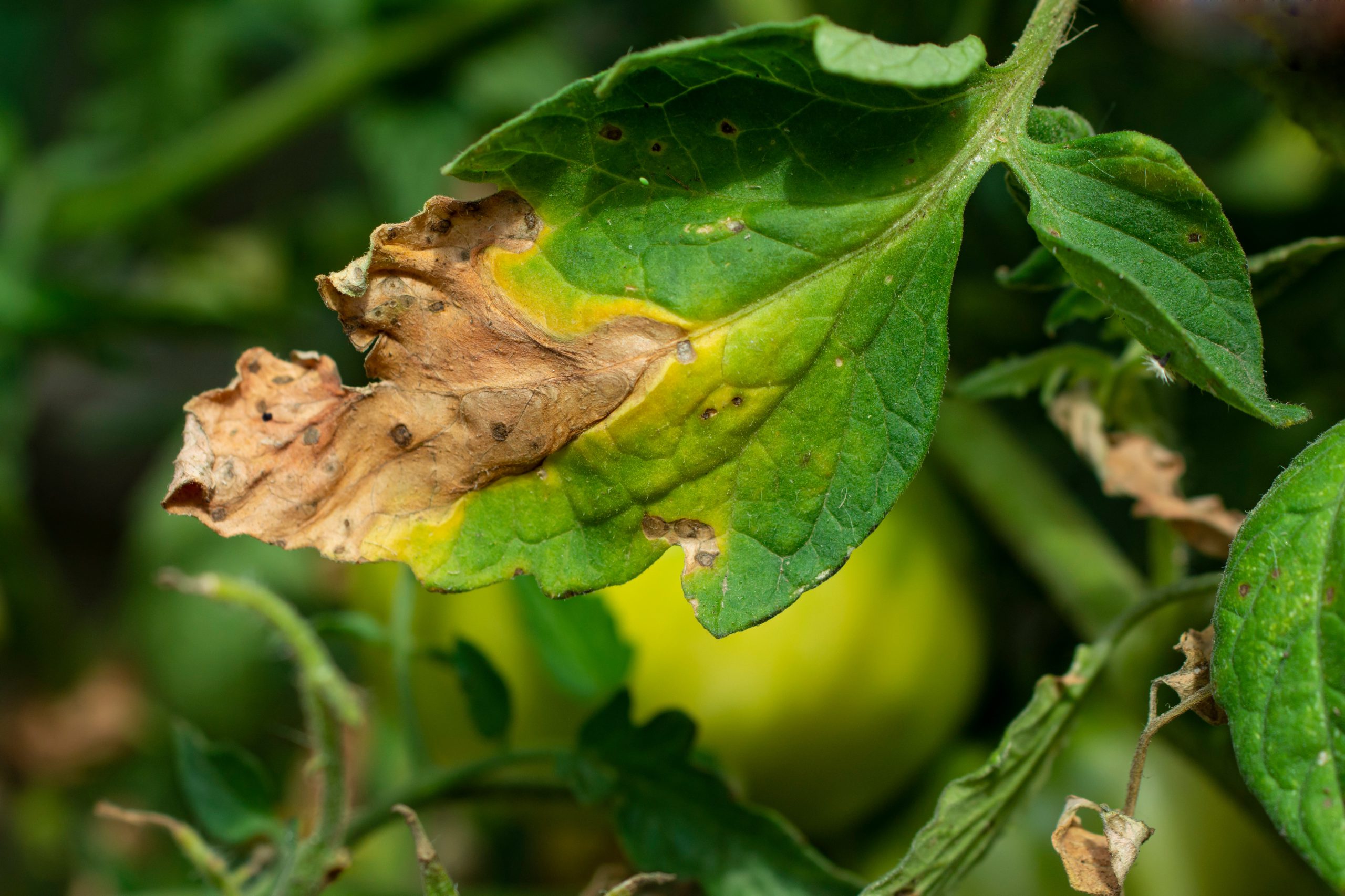
Now that the weather is consistently warm and humid, risk of blight is high. Be sure to check your tomato and potato crops regularly and remove the plants at any signs of fungal infestation. If caught early, simply remove the infected foliage and leave the tubers in the ground.
